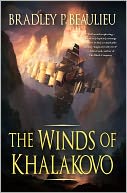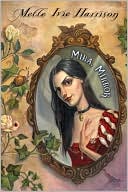Tuesday’s post about the idea of homosexuality as a defect led to a great deal of discussion, as expected. I also received more criticism for that post than anything I’ve done in a long time. Almost universally, that criticism came from friends of Stone.
This doesn’t invalidate the criticism, and I completely understand feeling protective of one’s friends. Protectiveness of one’s friends is, in fact, one of the reasons I wrote the post to begin with.
So I’ve been doing a mental debrief. I try to do this fairly regularly. Some of the core questions I’m looking at are:
- Did this post accomplish anything good?
- Did it do harm?
- Did the good it accomplished outweigh the harm?
- Could I have written it differently so as to increase the former and/or decrease the latter?
I think the answer to all four questions is yes. For today, I wanted to focus primarily on that fourth question.
The Title – I titled the blog post after the axiom in Lavie Tidhar’s story. I think that was a mistake. My goal was to use the things Stone had written as a staring point, and to move to a broader conversation about prejudice and bigotry against homosexuals and same-sex marriage. The title kept the focus on one individual and lessened the focus on that broader discussion.
“You” vs. “You” – Similarly, about halfway through the post, I switched to statements like “you believe your sense of discomfort and offense is important enough to continue systematically denying legal status and protection to an entire class of human beings?” But my writing made it unclear that I was addressing the broader, generic “you” instead of continuing to focus on Stone specifically. This is something I could have fixed rather easily with a line like, “Dear world — if you believe blah blah blah…”
Genetic Defect – This phrase came not from Stone, but from Tidhar. My reading of Stone’s words matched up to the phrase, but after further discussion, reading, and some e-mail chats, I believe I was wrong. Stone was not claiming that homosexuality is a genetic defect. A defect, yes, but attributing it to genetics was part of a hypothetical posed by someone else. I don’t know if this makes any significant difference, but it was a mistake, and I wanted to own that.
Comment Moderation – I received feedback that the tone of the comments was too negative, especially on LiveJournal. I was asked to delete them, challenged for not responding to them all with the Smackdown Hammer of Whoopass and Moderation, and told that I was tacitly endorsing/encouraging attacks by not doing so.
To the best of my knowledge, I have never deleted comments except in cases of spam and blatant trolling. Looking back, my treatment of comments in this post was very similar to what it’s been in other posts. Likewise, the tone of the comments was similar to other posts … the difference being that this time those comments were directed at someone’s friend.
I do need to revise and post/bookmark my moderation policy. In general, I will moderate, but I try to do so lightly. Hell, I’ve allowed comments from angry “men’s rights” advocates decrying rape as a weapon women use against men. Sometimes I simply ignore these comments. I don’t believe that means I’m tacitly endorsing their nonsense.
Like I said, I understand feeling protective. But I’m also uncomfortable that apparently this sort of comment was acceptable when it was about strangers in previous posts, but gets challenged now that they’re about a friend. This is something I’ll continue to think about.
Speaking Up to Power – There’s a theory in comedy that you should always try to direct your jibes upward. Lampooning someone in a position of higher power is funny and socially useful. Doing the same to someone in a powerless position is not funny, and not cool.
While I don’t believe this is a perfect analogy, I’d be a fool not to recognize that in the blogging world, I currently have a much broader readership and much more “power.” This is something I need to think about more, and something I hope to keep in mind when writing future blog posts.
#
This is far from everything, but this follow-up is already longer than the original post, and there’s only so much my brain can process at once. None of this changes my anger, or my belief that it’s important to speak out and publicly challenge prejudice and bigotry. But one of the ways I try to improve as a writer and a human being is to try to understand when and how I could have done something better.







 After my agent finished reading the ms, he mentioned that he pictured one of my main characters, Rehada, as
After my agent finished reading the ms, he mentioned that he pictured one of my main characters, Rehada, as 




 When I was sending out The Monster in Me
When I was sending out The Monster in Me  My second book, Mira, Mirror
My second book, Mira, Mirror